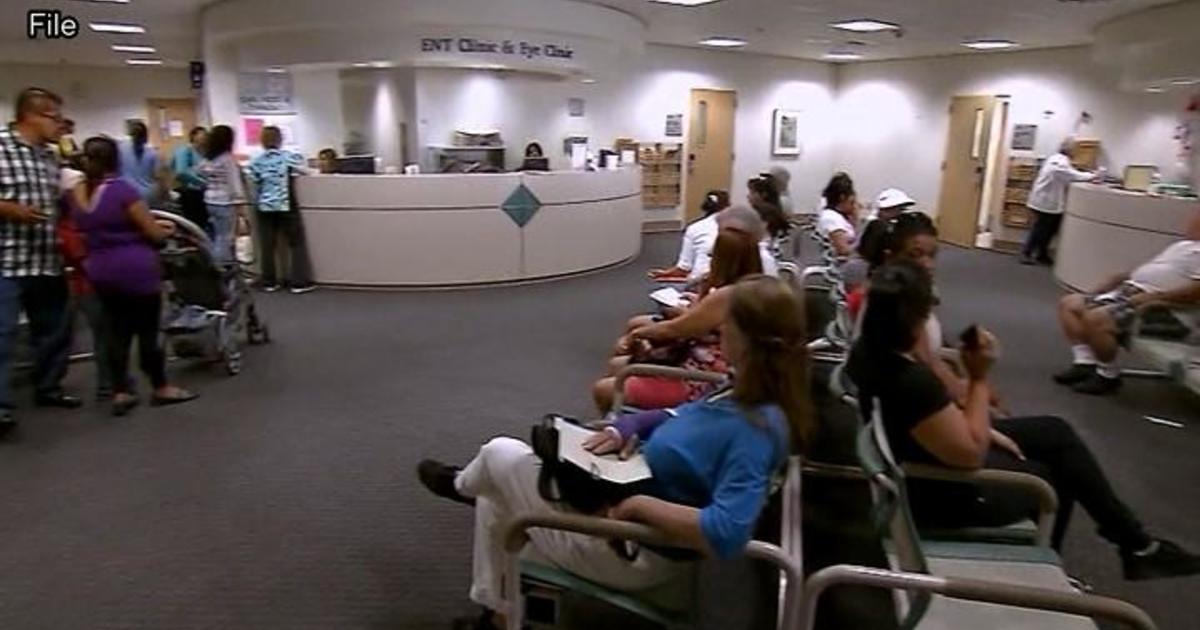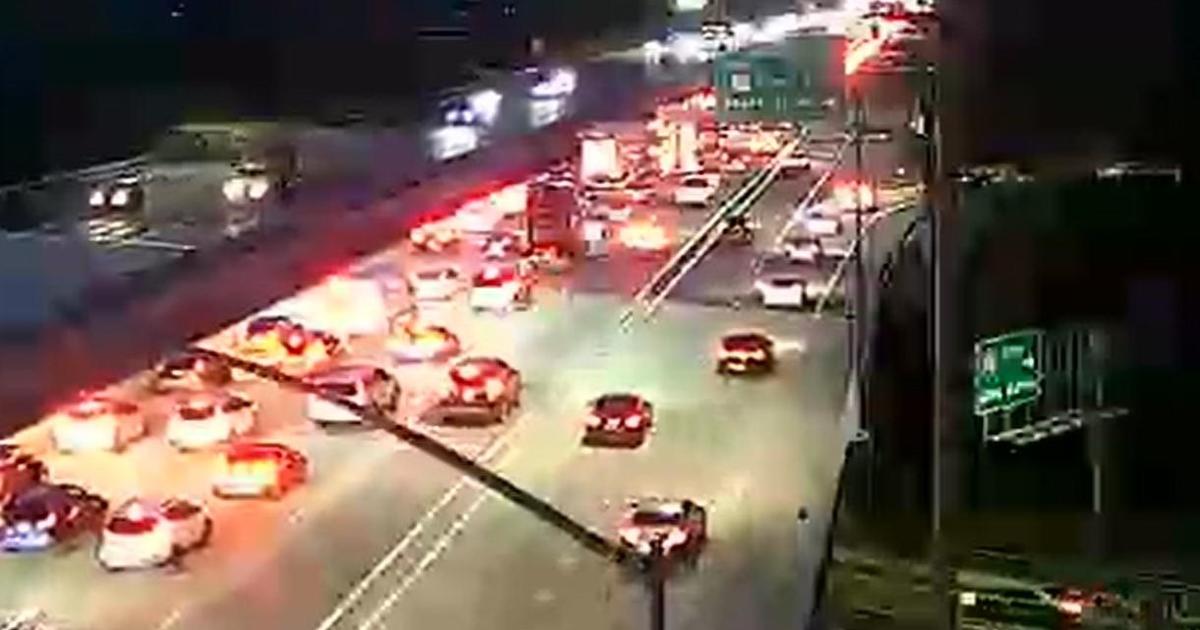Md. Casinos Slow To Reach Once-Anticipated Revenue
ANNAPOLIS, Md. (AP) -- Maryland lawmakers are still waiting for the big payout from the Legislature's gamble more than four years ago on legalized slot machines. To truly hit the jackpot, though, some lawmakers believe the state must expand gambling further, through table games and a Washington-area casino, to be competitive with nearby states and generate the dollars needed for education and other needs.
When the General Assembly voted in 2007 to let voters decide whether to allow up to 15,000 slot machines at five casinos in the state, supporters touted it as a sure-fire way to bring in millions for education, shore up the state's horse-racing industry, and avoid painful cuts and tax increases.
Voters approved slot machines at five casinos in 2008. But so far, only 2,300 slot machines have been turned on at two locations, off Interstate 95 and on the Eastern Shore. State analysts have reduced projected revenues amid bad economic times, competition for gambling dollars from neighboring states and delays in developing three other casinos.
Clyde Barrow, director of the Center for Policy Analysis at the University of Massachusetts, Dartmouth, said Maryland came in at the tail end of the racing wave. That's when neighboring states put slot machines at horse racing tracks, which accommodated slots with little capital investment. Now, states are more interested in job creation, which can be enhanced by table games that require dealers.
"I don't think Maryland gaming policy can be as successful as they anticipate unless they move into that direction and maybe even more," said Barrow, an expert on state gambling policies, noting that other states have also added hotels to the mix.
Maryland Gov. Martin O'Malley, who led the push in late 2007 for a constitutional amendment to legalize slot machines after years of legislative gridlock on the issue, acknowledged recently that a number of factors "came together in a perfect storm to delay our ramp up of this long-debated issue."
The Democrat, who was a reluctant backer of slots, is quick to note that the state's first casino in Perryville, which opened in 2010, is doing well now. And he said bidders for casinos in Baltimore and Rocky Gap State Park appear on track to receive licenses after failed bids by others earlier. The state's largest casino, in Anne Arundel County, is scheduled to open this summer.
"I think it's moving forward pretty well now," O'Malley, who hasn't endorsed expanding gambling further, said this month of the current slot machine effort in the state.
While O'Malley never said slot machine revenue would enable the state to avoid tax increases, some slots backers alluded to the anticipated revenue as a way to head off taxes when they were trying to build support for the referendum. Now, as Maryland tries to close a $1.1 billion budget shortfall and lawmakers again weigh tax increases proposed by O'Malley to find revenue, state officials are keenly feeling the pressure to allow table games such as blackjack and craps. Some feel the games are needed to keep up with gambling venues in Delaware, West Virginia and Pennsylvania.
"Politics is like war," Senate President Thomas V. Mike Miller, D-Calvert, told local officials at a conference last month, referring to the need to adjust state policy on gambling. "You hold on to your own, but take from somebody else."
Miller has expressed interest in authorizing a casino in Prince George's County near Washington to draw customers from the nation's capital and Virginia, and he supports allowing table games to better compete with other states.
Legislation was recently filed in Annapolis to allow table games and a casino in Prince George's, but it remains unclear whether there is enough support in the county or the statehouse. Prince George's County Executive Rushern Baker has expressed support for a $1 billion high-end casino next to the Potomac River at National Harbor. Even if a bill were to pass, the measure would require state residents to approve it in a November referendum.
Delaware, which has been drawing Maryland gamblers for years, already is bracing for its neighbor's efforts to keep gamblers in Maryland. Delaware Gov. Jack Markell last year supported a proposal to expand gambling beyond the state's three casinos, but now he says his goal is to ensure the stability of the state's existing gambling industry.
Despite Maryland's slow start-up, the state is reaping benefits from its two casinos.
So far, they have grossed a total of about $196 million. Of that, $95 million has been set aside for schools, and about $65 million has gone to the casino operators. About $14 million has been set aside for horse racing purses, and $11 million has gone to local impact grants.
However, Maryland has had to make a huge investment as well. The state's three-member Board of Public Works, which includes O'Malley, has approved about $265 million in contracts for the state to buy or lease nearly 7,000 slot machines for the first three casinos.
While slots supporters say the revenues are helping education, the state's largest teachers union worries they haven't generated more money at a time when lawmakers are considering asking counties to pony up more for teacher pensions.
"Had slots revenue been more productive to date, the state might feel less pressure to shift pension costs, which threatens to take critical resources away from classrooms and students," said Adam Mendelson, a spokesman for the Maryland State Education Association.
More revenue is on the way. The state's largest planned casino, with 4,750 slot machines, is expected to open this summer, halfway between Baltimore and Washington. The Maryland Live! Casino, which will be located next to Arundel Mills shopping center, will ultimately have added attractions such as upscale restaurants and a live-music venue.
Plans are in the works to bring a casino to Baltimore, after setbacks over the years. CBAC Gaming LLC, a group associated with Caesars Entertainment Corp., is pursuing a license to put 3,750 slot machines in the city.
Delays and competition from neighboring states led the state's budget analysts in October to revise estimated total slot machine revenue for the next five years downward by $474 million, or 12 percent. In the fiscal year that ended June 30, revenue for the state's first casino off Interstate 95 in Perryville came in roughly as projected for the first year. But revenues for a casino on Maryland's Eastern Shore, not far from Delaware, performed only half as well as projected, analysts said.
"Regardless of what it is, it always becomes an issue where the more competition that comes into the area, the amount of revenue that's projected never seems to materialize," said Maryland House Speaker Michael Busch, a Democrat who has long been leery of expanded gambling.
Trouble finding capital to follow through with development plans has continued to be a problem. Last month, the state's slot machine commission rejected a proposal by Landow Partners LLC to put a casino in western Maryland's Rocky Gap State Park. Landow's proposal included a request to borrow about $25 million through state bonds for the venture, a request the commission could not support.
Now, there's only one proposal before the commission for the Rocky Gap site by Evitts Resort LLC.
Despite a sluggish start, local residents who live near the Ocean Downs casino in Berlin, Md., say they support more forms of gambling to make the casino more competitive with Delaware.
"It's a positive thing for our community," said Tony Devereaux, 51, of nearby Ocean Pines. "During the offseason, it's really slow around here."
(Copyright 2012 by The Associated Press. All Rights Reserved.)



